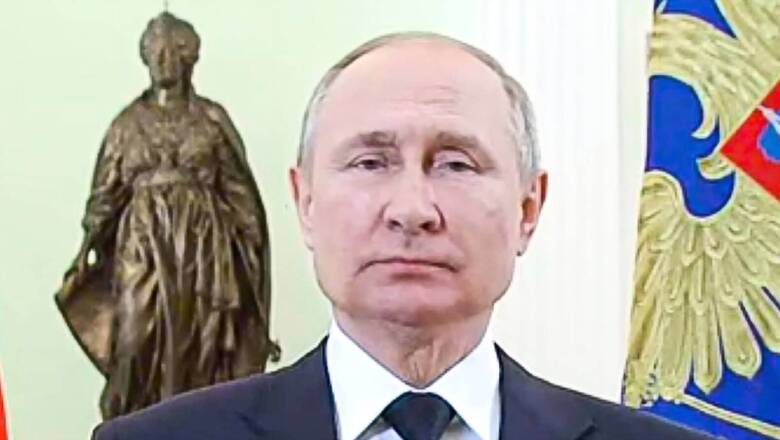
views
Russia’s Internet is already a completely different place than it was just two weeks ago, before the Ukraine war. While social media platforms such as Twitter and Facebook have limited access in Russia, Netflix is no longer available and TikTok creators can no longer upload videos.
According to new documents released by the Russian Ministry of Digital Development, some government have suggested that Kremlin has probably begun planning to disconnect from global Internet by March 11.
#Russia began active preparations for disconnection from the global InternetNo later than March 11, all servers and domains must be transferred to the #Russian zone. In addition, detailed data on the network infrastructure of the sites is being collected. pic.twitter.com/wOCdRqOJej
— NEXTA (@nexta_tv) March 6, 2022
Needless to say this news comes at a time when Russia is subjected to a barrage of Western sanctions as a result of its invasion of Ukraine.
The documents reportedly reveal that the Kremlin is attempting to eliminate reliance on any Western internet services, potentially isolating Russia from the rest of the global Internet, a move that would further cripple Russia’s economy and put an end to the promise that a free and open Internet could act as a check on authoritarian leaders such as Vladimir Putin.
But the reports were found to be inaccurate as these documents, which were shared online, highlighted that the Russian authorities want state-owned websites and online portals to coordinate operations by the end of the week to defend telecommunication services on the Internet.
Kremlin was making efforts to ensure that its government websites would continue to function in the case of more cyberattacks, which have been hammering Russian online portals since the start of the war. To do this, the Russian authorities want websites to migrate to Russian-owned hosting firms and to remove any Java script generated by foreign corporations—such as tracking code written by Facebook and Google.
The Russian ministry told the media, “There are continuous cyber-attacks on Russian sites from abroad. We are preparing for different scenarios. There are no plans to disconnect the Internet from inside.”
However, according to the newly released documents, it also instructs websites to begin using Russian Domain Name System (DNS) servers by March 11. DNS is like a phonebook that translates web addresses to the corresponding numerical IP address.
The global DNS is managed by the Internet Corporation for Assigned Names and Numbers, a non-profit organisation based in the United States (ICANN). Russia is working on an alternative DNS system that might allow it to run its own Internet without relying on ICANN.
In this case, it should be noted that there was a 2019 sovereign Internet law. It was a contentious regulation that handed the Kremlin far more power over Russia’s Internet, including the capacity to easily monitor and trace online activities as well as filter information, much like China’s Great Firewall.
Building an independent Russian DNS system, separate from the global system, was a part of that strategy. The infrastructure was supposed to be in place by the end of 2021. But, according to experts, despite the Kremlin conducting many tests of this new sovereign internet, it is still not complete.
However, the latest documents show that the Kremlin is eager to move its infrastructure to Russian-only servers and services as soon as possible. While the measures will undoubtedly protect the sites from cyberattacks, they will also aid in the event that the Russian government decides to disconnect from the Internet.
Separately, last week, Ukraine urged ICANN in a letter to suspend Russia from the Internet’s domain registry system. But the agency denied the request citing its wrong effect on citizens.
But several days later, Cogent Communications, an Internet backbone company that owns the infrastructure that routes data across continents, announced that it was terminating all contracts with its Russian customers, which included high-profile accounts like the state-backed telecom giant Rostelecom and Russian search engine Yandex.
Cogent’s action will not completely cut off Russian customers, but it will impede Internet traffic in Russia and overburden other Internet backbone firms’ links to the nation. If additional backbone providers band together, Russia’s ability to use the Internet could be severely hampered.
Considering this fact, the Russia’s digital ministry’s declaration might be understood as preparatory steps for when the country is cut off digitally from the rest of the world.
Read all the Latest Tech News and Breaking News here




















Comments
0 comment